by Sajad Jiyad
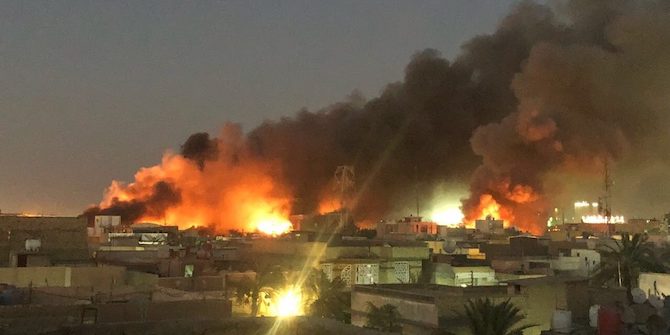
At the end of 2019, as protests continued to pressure the political elite in Baghdad, it was business as usual in Basra. Despite demonstrations, sit-ins and roadblocks at various oil fields and the Um Qasr Port, there was no significant impact on Iraq’s oil sector. In fact, during 2019 Basra oil exports supplied around 98 percent of the federal government’s revenues with a monthly average of around $6.5bn. As the chart below shows, the government in Baghdad has posted revenues of between $6bn and $8bn monthly for the past two years, almost exclusively from Basra oil exports.
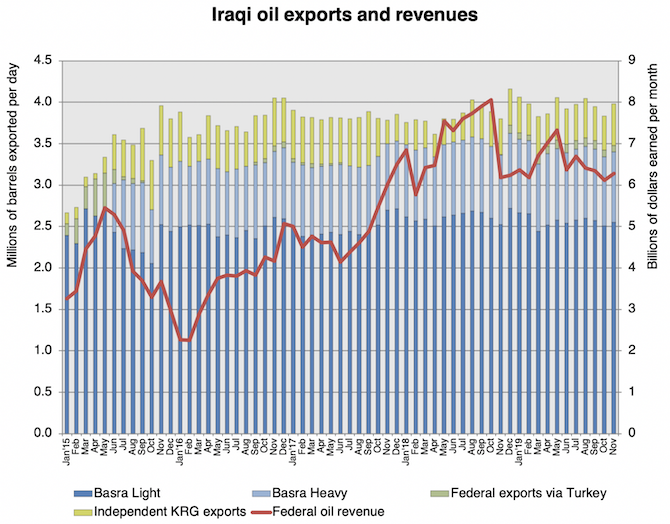
With billions of dollars being generated for the country by Basra Province, the irony of widespread poverty and lack of basic services in the area is not lost on residents there. Months before the summer 2018 protests broke out, people were complaining about federal government neglect and a range of governance issues from jobs to services and security. Once the war against Islamic State ended in December 2017, citizens in Basra were keen to point out that their province’s oil had kept Iraq running, but they were yet to see any benefits from it. As such, when protests began in summer 2018 and autumn 2019 they targeted the very oil fields and infrastructure that generate the billions of dollars per month to keep the government afloat. Despite the threats of terrorism and regional tensions, it is in fact Basra that will determine whether Iraq survives or not, and protestors know this well.
The problems Basra faces are not new, having plagued the province since the post-2003 order was instituted. In some ways Basra’s governance issues are representative of the country as a whole, yet the fact that its oil is the lifeblood of the national economy has somehow kept it from complete collapse. Part of the problem is the entire federal-local dynamic that has struggled to provide transparency and accountability. In theory, the local government in Basra is responsible for providing services, executing its budget and providing security. The push to decentralise administrative power has had international support but also comes with a risk of exacerbating governance issues if preparation is insufficient. The Abadi government accelerated the decentralisation drive, but results so far have been disappointing. The Abdul Mahdi government appeared to have eased off on this effort, with recent protests and pressure seeing provincial councils being suspended.
Where responsibilities are shared by federal and local governments, issues arising tend to be the most badly managed and damaging to local people. In August 2018, over 100,000 were hospitalised in Basra because of contaminated drinking water. The project of improving water and sanitation in Basra involves no less than 8 federal ministries and departments, along with 6 local agencies and the governor’s office. When problems occur it is not clear who is responsible, and despite billions of dollars being allocated and spent on service delivery the inefficiency is glaring. In this instance, decentralisation has not helped and has probably made things worse, which is why protests frequently mention scrapping provincial councils, seemingly arguing for greater centralisation.
Restoring confidence is not an easy process and it is likely that protests in Basra and Iraq as a whole will continue for some time. However, there are solutions that policymakers and influential actors can pursue that will help alleviate the situation in the long run. Firstly, a new electoral law needs to be drafted that will divide Iraq into electoral districts allowing MPs and provincial council members to be elected at local level, to help with representation. Secondly, provincial elections need to be held as soon thereafter to bring in new local government and better align local politics with national changes (the last provincial elections were held in 2013 – there have been two national elections since then and the national political map has changed much, but this has not been reflected at the local level). Thirdly, the new electoral law should allow for the direct election of the governor by citizens so that accountability is clearer.
Citizens will then be able to pressure local government to improve service delivery, execute budgets effectively and reduce corruption, with the carrot being good performance rewarded by re-election and the stick being forced out of office. Once politicians are held accountable at the district level then they will be forced to work to improve conditions at the local level or face losing their positions. At the moment no such pressure exists and the tangled framework for decentralisation means citizens are unsure of who is responsible for what. Without such reform at the political level there can be no way to regain trust in the democratic system for citizens in Basra and the rest of Iraq.
One significant challenge in the meantime is that of population growth. Basra Province has an estimated population of over 5 million, with at least 4 million residing in Basra City (both are likely to be underestimations). The population growth rate is above the 2 percent national figure projected by the Planning Ministry and the damaging effects of environmental change have led to rapid rural-to-urban migration, swelling informal housing districts and shanty towns. The huge increase in demand for water and electricity, in addition to other services such as health and education, is nowhere near being met sufficiently, nor are the requirements for job creation and the growth of the local economy.
The effects of the COVID-19 pandemic on Iraq generally, and Basra specifically, are not yet clear. The fall in oil prices is expected to lead to a severe economic and fiscal crisis at a time when there is a political leadership vacuum, due to the failure to form a new government in Baghdad since December 2019. The increased tensions around security do not bode well for the short term, and the summer months will likely witness further shortages around electricity and water supply, precipitating large demonstrations by angry residents in Basra.
While they wait for reforms that improve governance, the people of Basra will continue to see black gold being extracted from their areas while services struggle to function. If tangible improvements to people’s daily lives do not come about quickly enough, they may decide to pursue more radical forms of protest, hindering Baghdad’s ability to meet payroll and potentially forcing more people out onto the streets.
This blogpost is a product of the Conflict Research Programme–Iraq’s project ‘Decentralisation in Iraq‘, led by Principal Investigators Ali Al-Mawlawi and Sajad Jiyad and funded by the UK Department of International Development. All views are the author’s own.



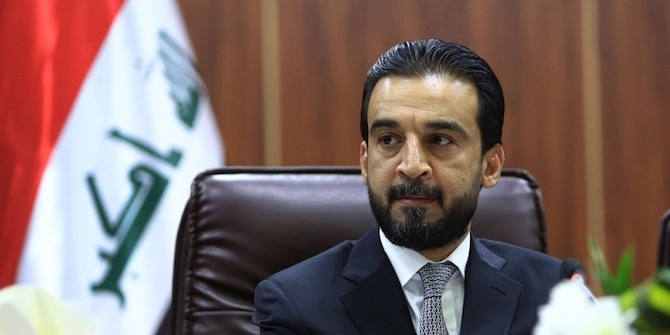

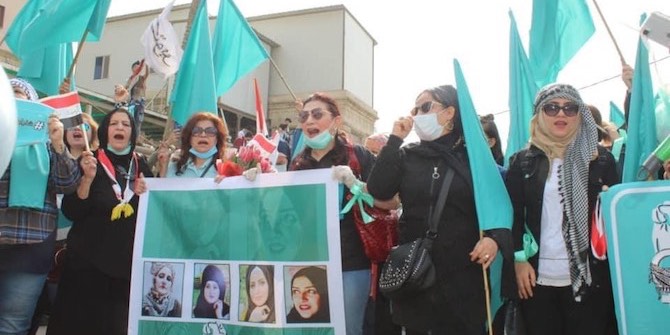
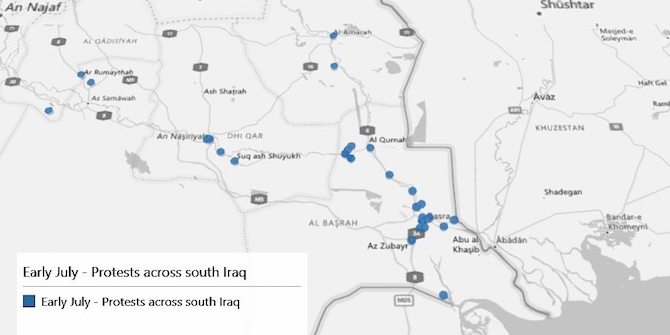
Check the posting: This is Iraq not Iran!!!
Well spotted – have corrected the categorisation error. Thanks!